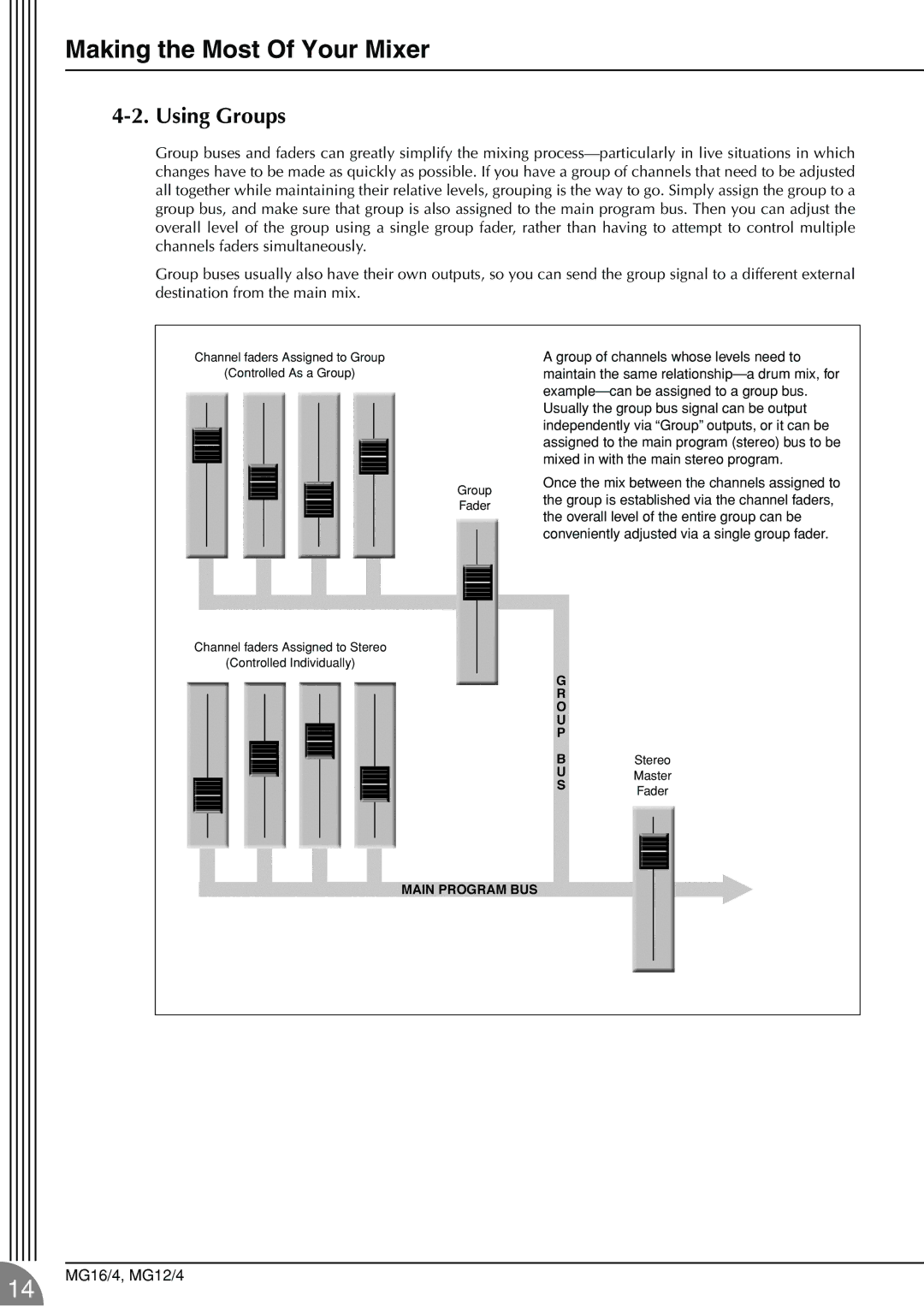12/4 specifications
The Yamaha 12/4 mixer is a compact yet powerful audio mixing console that has gained popularity among musicians, audio engineers, and sound technicians. Renowned for its versatility and robust build, this mixer is ideal for both live sound and studio applications.One of the standout features of the Yamaha 12/4 is its 12-channel configuration, which includes four microphone inputs with high-quality preamps. These preamps are designed to capture audio with remarkable clarity and low noise levels, making them perfect for a variety of sound sources, from vocals to instruments. The four XLR inputs are complemented by additional line-level inputs, offering flexibility to connect multiple devices.
Each channel on the Yamaha 12/4 mixer is outfitted with a three-band equalizer, allowing users to shape their sound effectively. The EQ provides control over low, mid, and high frequencies, enabling precise adjustments to tailor the mix to specific requirements. This level of control is particularly beneficial for live performances, where quick tweaks can significantly enhance the audio experience.
The mixer also includes an onboard effects processor with a range of digital effects, such as reverb and delay, adding depth and dimension to the sound. This feature is a valuable asset for performers looking to enrich their live sound without the need for external effects units.
In terms of connectivity, the Yamaha 12/4 offers various outputs, including main outputs and auxiliary sends. These outputs allow for simple routing of audio signals to speakers, monitors, or recording devices. The auxiliary sends can be utilized for stage monitoring or for sending signals to external processors, enhancing the mix's overall versatility.
The design of the Yamaha 12/4 is both user-friendly and compact, making it an ideal choice for smaller venues and mobile setups. Its lightweight chassis and robust construction ensure durability during transport and frequent use, while clearly labeled controls facilitate ease of use for both novice and experienced operators.
In conclusion, the Yamaha 12/4 mixer combines quality, functionality, and versatility in a compact form, making it an excellent choice for audio professionals looking for a reliable mixing solution. With its high-quality preamps, flexible EQ, digital effects, and robust build, the Yamaha 12/4 stands out as a valuable tool for anyone in the sound industry, whether in the studio or on stage.

